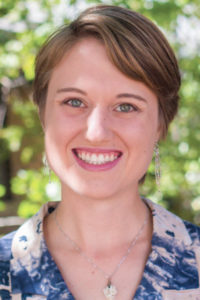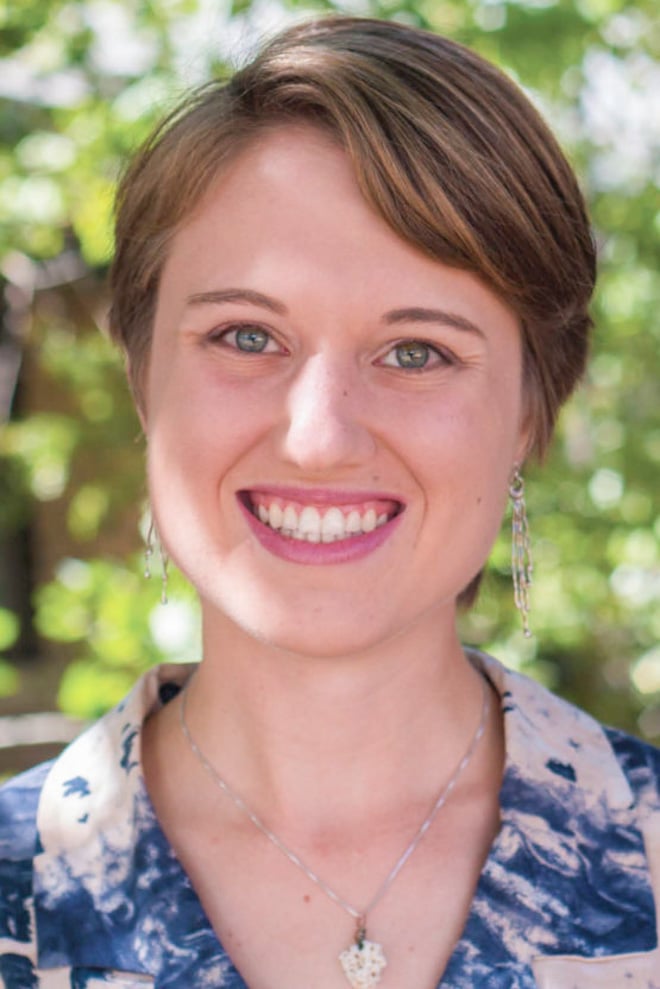Meghan Shea ’17 was named a Rhodes Scholar-elect on Nov. 19, making her one of 32 American students to win a fully-funded scholarship to further her studies at Oxford this year. Shea, an environmental systems engineering major at Stanford and prospective nature, society and environmental governance student at Oxford, is an active member of several on-campus programs, such as Students for a Sustainable Stanford, and an independent researcher working through such programs as Stanford@SEA and Mentoring Undergraduates in Interdisciplinary Research (MUIR). The Daily recently sat down with Shea to shed more light on her journey as a scholar.

The Stanford Daily (TSD): Congratulations on the Rhodes; what an incredibly prestigious honor! Can you describe your interests and how you got involved in them?
Meghan Shea (MS): I’ve always really loved the ocean and the environment more broadly, and so I knew that at Stanford I wanted to study something related to the environment — I wasn’t really sure what I wanted to do yet, so I was just exploring through a bunch of different classes my freshman year. I realized that I really love math as a set of quantitative tools for thinking about science, but I also really loved the fact that Stanford has all of these interdisciplinary majors, so I was really torn between a couple of different majors. My sophomore year, right as I was about to declare, they unveiled this brand new program, which took these quantitative foundational concepts and applied them to interdisciplinary environmental problems. I ended up going that direction thinking that I wanted environmental work more broadly. But when I went abroad and spent time near the ocean, I realized that in fact, the ocean is the ecosystem that I am the most passionate about, so I ended up using environmental systems engineering as essentially an oceanography degree.
TSD: What motivated you to apply for the scholarship?
MS: It was mostly this particular program that I’d been reading about that I was most interested in — I also just think that the academic history Oxford has is really incredible, and the resources they’ve built up over the history of the institution are really incredible. The opportunity to study there for two to three years is something I’m really excited about!
TSD: What was the process like, and what was the most nerve-wracking part for you?
MS: The interview part was definitely the most nerve-wracking. In my case, I was interviewing in Pennsylvania, and you show up the night before for the reception with all of the other finalists in the region and all of the panel members who’ve read your application and know everything about you. Conversations tend to the go the direction of what you’ve wrote about on your application, so what seems like a casual gathering is actually a way that the panel is getting information about you. Even that, the beginning part of the process, is stressful. Everyone comes back the next day, and we have these intense and short interviews with the panel — I was at a big long table with all the panelists on an arc on one end and me on the other. They spent 20 minutes asking me questions that I couldn’t possibly have predicted they might ask, which is a really interesting experience. I had a surprising amount of fun in the actual interview, but it was also definitely not the easiest interview to go through. Then, you have all the finalists sitting together in a room as the panel walks in, and you sit together as they announce the winners. It’s an intense process.
TSD: Looking back on your Stanford journey, what parts of your experience will you take with you to Oxford? What was most memorable for you?
MS: The first thing that comes to mind is the people at Stanford — the professors I’ve had, mentors I’ve had, people both in and out the classes I’ve been in are truly the most wonderful part of Stanford. I feel so lucky to have been here for four years and built the connections and friendships I have. Those are definitely the things I will carry the most with me to Oxford: the lessons I’ve learned and the friends I’ve made along the way.
I think for me, I was really lucky to end up in an academic program and a lot of social situations that really excited me and brought out my passions. I tell people back home that I haven’t taken a class at Stanford yet that I’m not excited about, getting up to go that class or do the work for that class. I think I had the same experience outside of classes also; I did a lot of different, random things at Stanford and loved them all for different and random reasons. Doing a lot of things that I was excited about allowed me to also bring the best version of myself to all of those different things and give back to the communities that I really cared about.
TSD: How does the Rhodes fit into the bigger plan for you, if you have one at the moment?
MS: So ultimately, my vision and my dream is to find a career in oceanographic research that lets me continue to be a scientist and be in a lab and be out in the field but also lets me play a role in policy-making and communicating research to the public. I think academia is one place where I could take on all of these roles, and government research is another. I don’t know where I’ll end up, but the hope is that I can be doing research that will actually impact the oceans that I care so deeply about as opposed to doing something limited to science papers and journals. I think for me, the Rhodes and studying at Oxford will be an opportunity for me to think more deeply about the human side of environmental change, whereas at Stanford I’ve thought about the scientific side. I’m excited to take a step back and now think about communicating the changes we’re seeing on paper to a larger audience.
TSD: Any advice for students looking to find their groove?
MS: The best advice that I can give is to both try new things and keep doing things you know you really love. It’s really easy to lose the balance between the two — to either spend a lot of time doing random and different things or to limit yourself. The challenge at Stanford is to find that balance between different things and following your passions — it’s really hard, but it’s my best advice.
TSD: If you had a biography written about you, what would the title be?
MS: I’m not entirely sure, but it’d have something to do with the ocean and something to do with vegetables. I don’t know what the connection would be, but I think there might be a pun involved.
Contact Adithi Iyer adithii ‘at’ stanford.edu.
